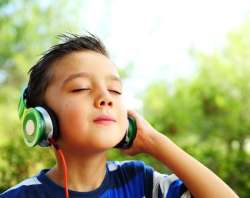Music therapy helps kids, teens fight depression: study
Music therapy may be an effective method for helping children and adolescents recover from depression and boost self-esteem, a new study has found. As many as 251 children and young people were involved in

Music therapy may be an effective method for helping children and adolescents recover from depression and boost self-esteem, a new study has found.
As many as 251 children and young people were involved in the study which took place between March 2011 and May 2014.
They were divided into two groups - 128 underwent the usual care options, while 123 were assigned to music therapy in addition to usual care. All were being treated for emotional, developmental or behavioural problems.
Researchers found that children and young people, aged 8-16 years old, who received music therapy had significantly improved self-esteem and reduced depression compared with those who received treatment without music therapy.
The study, by at Bournemouth University and Queen's University Belfast in the UK, also found that young people aged 13 and over who received music therapy had improved communicative and interactive skills, compared to those who received usual care options alone.
Music therapy also improved social functioning over time in all age groups.
"This study is hugely significant in terms of determining effective treatments for children and young people with behavioural problems and mental health needs," said Sam Porter, professor at Bournemouth University.
"The findings contained in our report should be considered by healthcare providers and commissioners when making decisions about the sort of care for young people that they wish to support," said Porter, who led the study.
"This is the largest study ever to be carried out looking at music therapy's ability to help this very vulnerable group," said Valerie Holmes, from Queen's University Belfast.
"Music therapy has often been used with children and young people with particular mental health needs, but this is the first time its effectiveness has been shown by a definitive randomised controlled trail in a clinical setting," said Ciara Reilly, Chief Executive of Every Day Harmony, a music therapy charity.
"The findings are dramatic and underscore the need for music therapy to be made available as a mainstream treatment option," Reilly said.
"For a long time we have relied on anecdotal evidence and small-scale research findings about how well music therapy works. Now we have robust clinical evidence to show its beneficial effects," she said.
(With agency input)